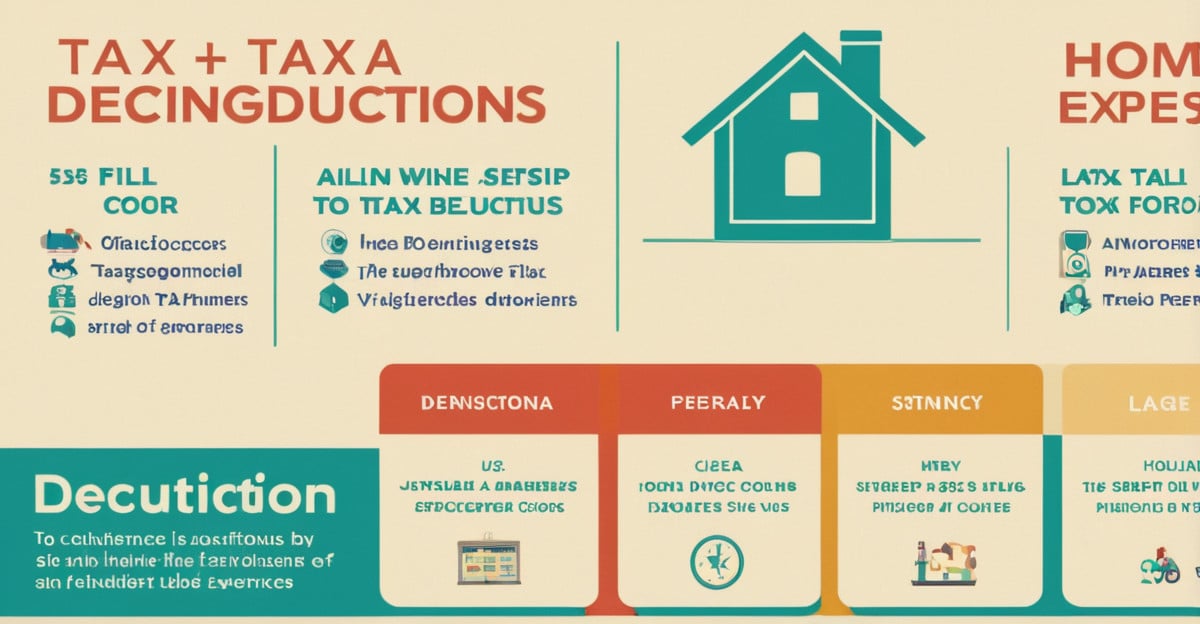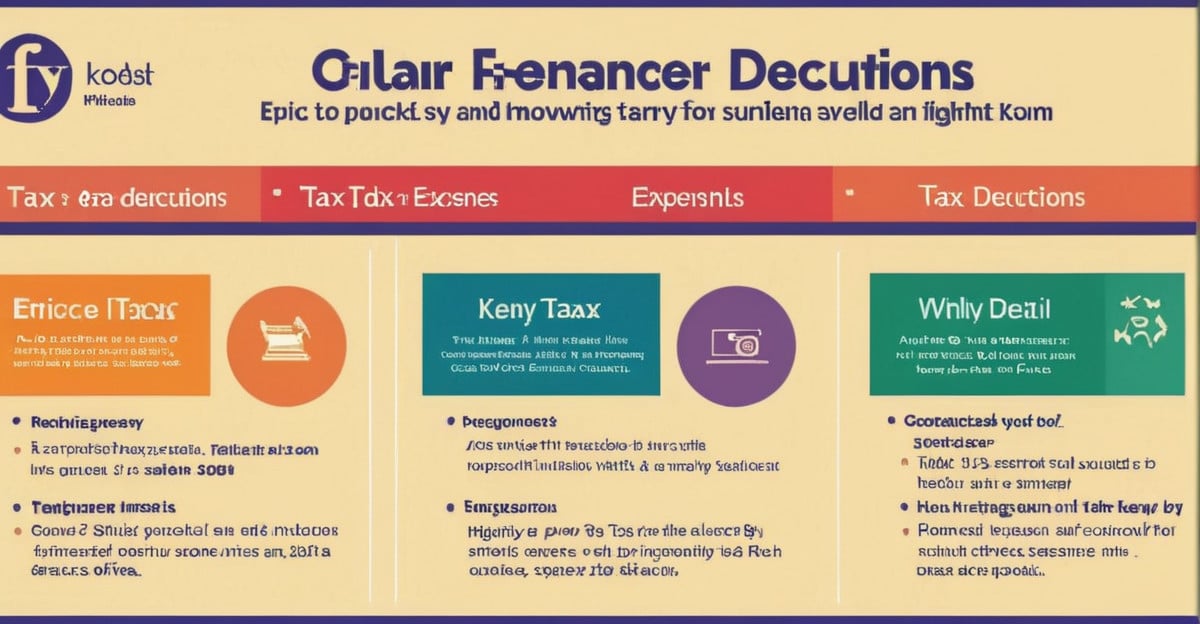
Introduction: Importance of Tax Deductions for Freelancers
Comprehending the tax deductions every freelancer should know is essential if you want to maximize your profits and reduce your tax liability as a freelancer. The tax code is still changing in 2024, so knowing what deductions you may take advantage of is more crucial than ever. You may keep more of your hard-earned money by lowering your taxable income by a large amount by utilizing these deductions. This book will help you confidently manage the complexity of the tax system by taking you step-by-step through the key tax deductions that all independent contractors should be aware of.
Home Office Deduction
The home office deduction is one of the biggest deductions available to independent contractors. If a part of your house is used only for business, you could be able to write off the costs associated with that area. This can cover a portion of your utilities, rent or mortgage interest, and even house maintenance. You must utilize your home office completely and on a regular basis for work in order to be eligible. It also needs to be your principal place of business. You can make sure you get the most out of this significant deduction by keeping thorough documentation and measurements of your area.
Business Travel Expenses
Traveling can frequently be an essential component of your work as a freelancer. Thankfully, a large portion of these travel-related costs are tax deductible. This covers expenses for travel related to business, such as airfare, hotel, and meals. You must maintain complete and accurate travel records, including receipts and a thorough log of your business activities, in order to be eligible for the deduction. Recall that personal travel expenses are not deductible; only those directly related to your job are.
Health Insurance Premiums
Self-employed individuals who cover their own medical expenses can write off the premiums. Self-employed people who do not qualify for employer-sponsored health insurance through their spouse’s employer or another job may deduct this amount from their taxes. The deduction can be a substantial method of lowering your taxable income and is applicable to both dental and medical insurance premiums. It is necessary to maintain thorough records of all premium payments made over the year in order to correctly claim this deduction.

Office Supplies and Equipment
You can deduct the whole cost of office supplies and equipment that you need to operate your freelance firm. Computers, printers, paper, pencils, and other necessary office supplies are included in this. Larger purchases, such expensive equipment and office furnishings, can be written off over a number of years. To make sure you claim the most deduction possible, keep track of your office supplies and equipment and save receipts.
Internet and Phone Expenses
You can write off a percentage of your phone and internet costs if you use them for work-related activities. Finding the percentage of consumption that may be attributed to your freelance work versus personal use is crucial. For example, you can deduct 60% of your phone bill if you use it for business 60% of the time. Maintaining accurate records and properly documenting your company use is essential to successfully claiming these deductions in the event of an audit.

Professional Services
Professional services, such accountants, attorneys, or consultants, are frequently needed by freelancers to assist with many facets of their businesses. These services’ costs are entirely deductible as company expenses. Keeping thorough records of all the costs associated with business planning, legal counsel, and tax preparation helps guarantee that you may properly deduct these costs from your income when filing your taxes.
Marketing and Advertising Costs
Growing your freelance business requires spending money on marketing and promotion, which is excellent news because these costs are tax deductible. This covers the price of promotional items, business cards, websites, and internet advertising. You may optimize this deduction and even grow your clientele by keeping track of all marketing-related costs and keeping your receipts.

Education and Training
Maintaining your competitiveness in the freelancing market requires ongoing education and training. You may deduct these expenses from your taxes if you enroll in classes, go to workshops, or obtain certifications that are relevant to your line of work. Tuition, course materials, and even travel costs for attending educational events are all covered by this deduction. To be eligible for this deduction, the education must be directly relevant to your current business activity.
Retirement Contributions
Making contributions to a retirement plan lowers your taxable income and is a wise method to invest for the future. There are various retirement plan alternatives available to freelancers, including Solo 401(k) and Simplified Employee Pension (SEP) IRAs. Because your contributions to these programs are tax deductible, you can save money on taxes and accumulate savings for retirement. To make the most of this deduction, you must be aware of the contribution caps and maintain thorough documentation of your contributions.
Conclusion: Plan Ahead to Maximize Your Deductions
Your financial well-being might be greatly impacted by comprehending and utilizing the tax deductions every freelancer should know. You may make sure that you maximize your deductions and reduce your tax burden by remaining aware and maintaining thorough records. Every deduction, including those for retirement contributions, business travel, and home office costs, is essential to your total tax plan. Make it a point to stay current on tax rules as 2024 progresses and, if necessary, seek professional advice. By doing this, you’ll be able to retain a larger portion of your income and use it into expanding your freelancing career.






